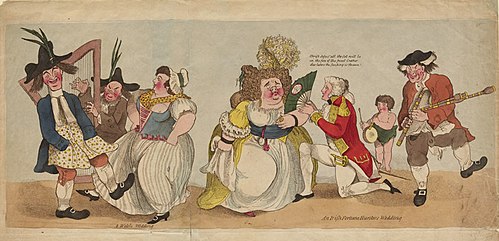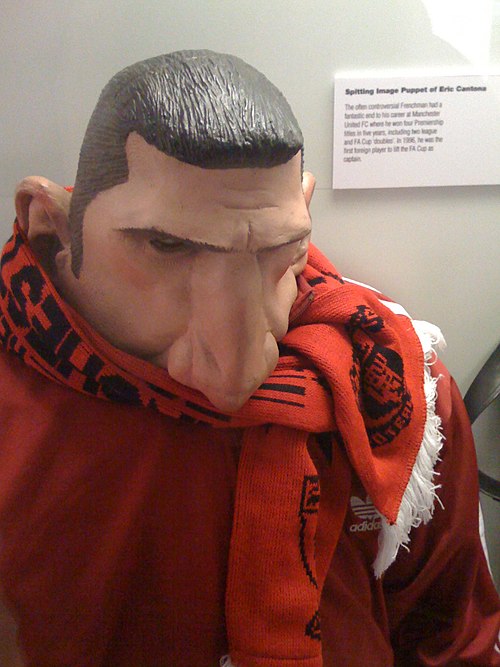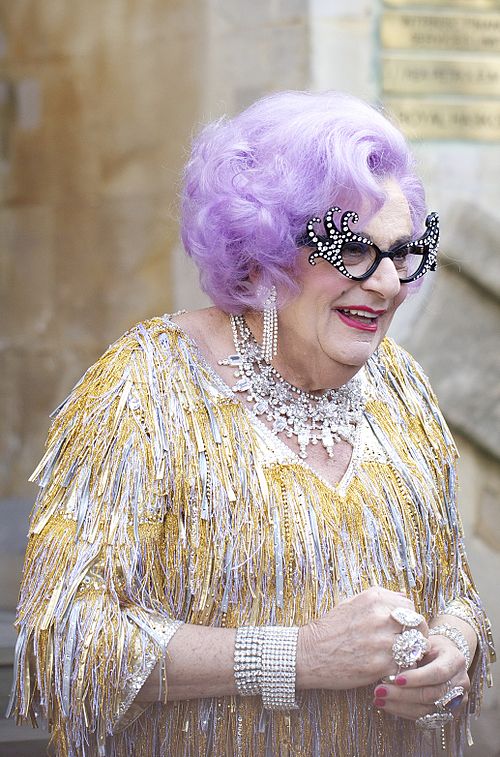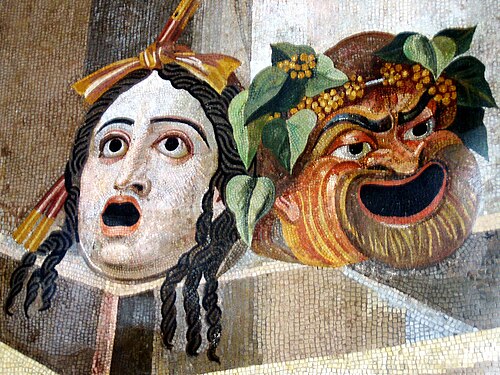Satirenoun
(uncountable) A literary device of writing or art which principally ridicules its subject often as an intended means of provoking or preventing change. Humor, irony, and exaggeration are often used to aid this.
Satirenoun
(countable) A satirical work.
Satirenoun
Severity of remark.
Satirenoun
A composition, generally poetical, holding up vice or folly to reprobation; a keen or severe exposure of what in public or private morals deserves rebuke; an invective poem; as, the Satires of Juvenal.
Satirenoun
Keeness and severity of remark; caustic exposure to reprobation; trenchant wit; sarcasm.
Satirenoun
witty language used to convey insults or scorn;
Satire
Satire is a genre of the visual, literary, and performing arts, usually in the form of fiction and less frequently non-fiction, in which vices, follies, abuses, and shortcomings are held up to ridicule, with the intent of shaming individuals, corporations, government, or society itself into improvement. Although satire is usually meant to be humorous, its greater purpose is often constructive social criticism, using wit to draw attention to both particular and wider issues in society.
Comedynoun
A choric song of celebration or revel, especially in Ancient Greece.
Comedynoun
(countable) A light, amusing play with a happy ending.
Comedynoun
A narrative poem with an agreeable ending (e.g., The Divine Comedy).
Comedynoun
A dramatic work that is light and humorous or satirical in tone.
Comedynoun
(drama) The genre of such works.
Comedynoun
(uncountable) Entertainment composed of jokes, satire, or humorous performance.
Comedynoun
The art of composing comedy.
Comedynoun
(countable) A humorous event.
Comedynoun
A dramatic composition, or representation of a bright and amusing character, based upon the foibles of individuals, the manners of society, or the ludicrous events or accidents of life; a play in which mirth predominates and the termination of the plot is happy; - opposed to tragedy.
Comedynoun
light and humorous drama with a happy ending
Comedynoun
a comic incident or series of incidents
Comedynoun
professional entertainment consisting of jokes and sketches, intended to make an audience laugh
Comedynoun
a film, play, or broadcast programme intended to make an audience laugh
Comedynoun
the style or genre represented by comedy films, plays, and broadcast programmes
Comedynoun
the humorous or amusing aspects of something
Comedynoun
a play characterized by its humorous or satirical tone and its depiction of amusing people or incidents, in which the characters ultimately triumph over adversity
Comedynoun
the dramatic genre represented by comedies
Comedy
Comedy (from the Greek: κωμῳδία, kōmōdía) is a genre of fiction comprised of discourses or works intended to be humorous or amusing by inducing laughter, especially in theatre, film, stand-up comedy, television, radio, books, or any other entertainment medium. The term originated in Ancient Greece: in Athenian democracy, the public opinion of voters was influenced by political satire performed by comic poets in theaters.





























